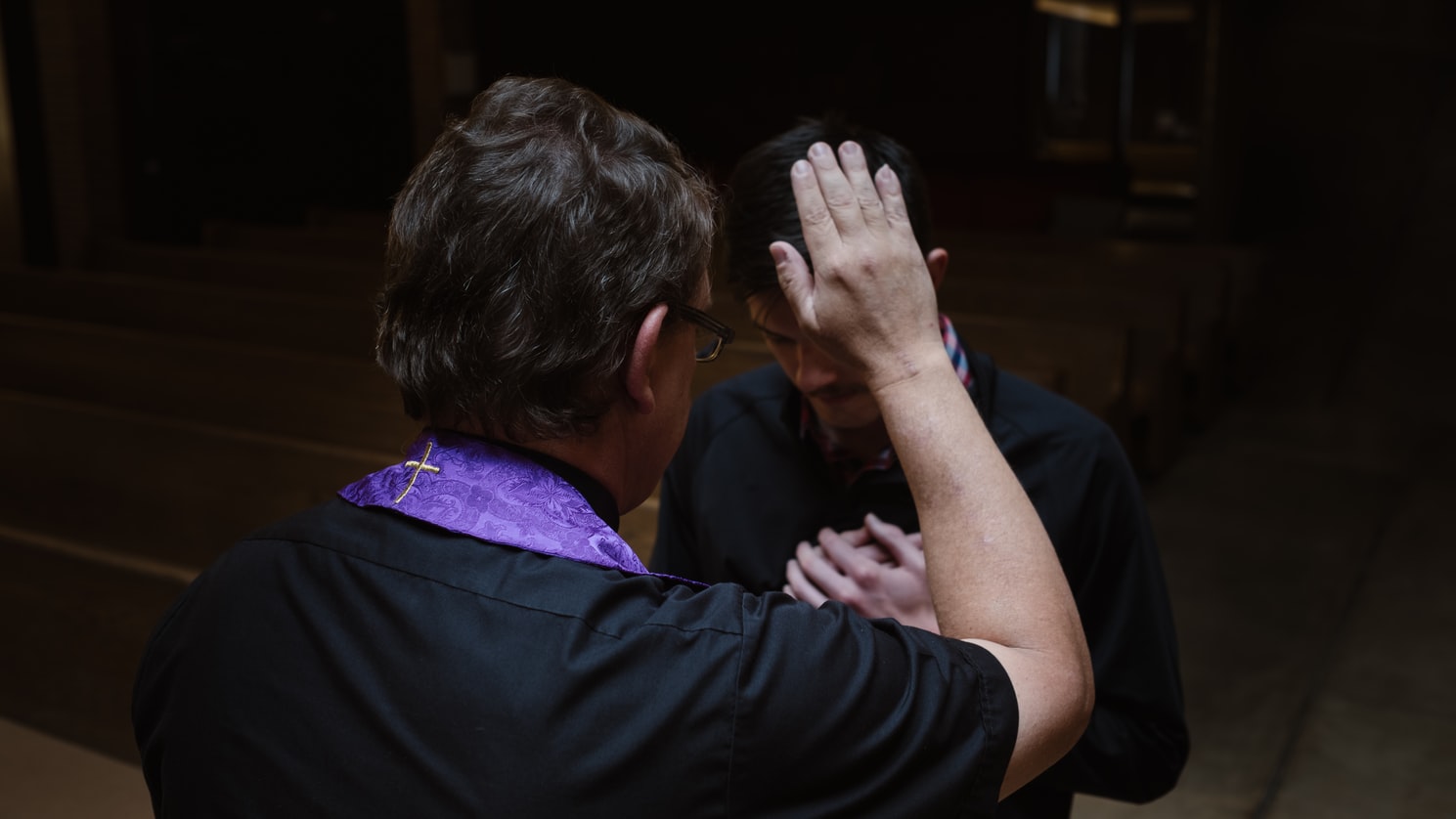Why Confession to A Priest
Confession like other sacraments is vital to the Christian life. Without confession, we remain locked in sin. Are all of our sins—past, present, and future—forgiven once and for all when we become Christians? Not according to the Bible or the early Church Fathers. Scripture nowhere states that our future sins are forgiven; instead, it teaches us to pray, “And forgive us our debts, as we also have forgiven our debtors” Matt. 6:12.

“God, the Father of mercies, through the death and the resurrection of his Son has reconciled the world to himself
and sent the Holy Spirit among us for the forgiveness of sins; through the ministry of the Church may God give you pardon and peace,
and I absolve you from your sins in the name of the Father, and the Son and of the Holy Spirit.”
It is called the sacrament of conversion because it makes sacramentally present Jesus’ call to conversion, the first step in returning to the Father from whom one has strayed by sin. It is called Penance’s sacrament since it consecrates the Christian sinner’s personal and ecclesial steps of conversion, penance, and satisfaction.
After his resurrection, Jesus passed on his mission to forgive sins to his ministers, telling them: “As the Father has sent me, even so, I send you . . . Receive the Holy Spirit. If you forgive the sins of any, they are forgiven; if you retain the sins of any, they are retained” John 20:21
If God sent his son to forgive us our sins, why is it so unreasonable to think Jesus gave his authority to others to forgive our sins? In the early Church, sins were often confessed publicly and privately but were never limited to silence with God alone.
So, in other words, we confess to a priest, not because he himself has the power to forgive sins, but because he acts as an agent in the name of God and forgives sins in His name.
The fact that the priest is a sinner, as are all men, does not affect the power he exercises. The power comes to him from his office. The same is true with a President or with a judge in our civil courts. These individuals’ private lives do not affect the authority they have under the Constitution to act.
Many Christians believe you only need to ask Jesus for forgiveness. At the same time, the Lord does want us to come to him when we fall into sin. He wants to bring us forgiveness so much that he gave the apostles the power to forgive sins. This power given to the apostles and their successors does not come from within them but from God. In the words of Paul, “All this is from God, who through Christ reconciled us to himself and gave us the ministry of reconciliation” 2 Cor. 5:18.
The psychology of forgiveness
Leaving the confessional after receiving the sacrament of reconciliation makes me feel like I’m walking on air with an indefinable sense of well-being. Today many Christians, including Catholics, neglect this opportunity to receive the outpouring of Grace found in the sacrament of reconciliation. The very idea of presenting their sins to a priest feels like the opposite of walking on air. Instead, it feels like the weight of a ton of bricks. Everything in life feels too hard, too much, too heavy. They know they should go to confession, but they don’t feel like going. They don’t have the strength, the energy, the stamina to get there. So they convince themselves that all they need to do is ask God privately to forgive them. Ironically many of these same people who deny God’s grace in the sacrament seek psychological help when they feel troubled.
Psychology has shown that speaking with a third person has tremendous healing power. The fundamental effectiveness of psychotherapy is the relationship between the client and the therapist, not the treatment method. This is why close friends are important; they help us navigate everyday struggles. Forgiveness of others and ourselves is of overwhelming psychological benefit.
Why Forgiveness Is The Bridge To Salvation & Happiness
Father Joe Shea explains why psychology and Christian theology both support forgiveness as the key to happiness and necessary for external salvation. ===Chapter1=== 00.00 Intro 0.20 Father Joe shea reading the holy Gospel according to Mathew 18-21:35 0.50 Peter approach Jesus how many times does he forgive his brothers and sisters 2.45 Dr. Menniger said, If he convinced the psychiatric patients in that hospital, 75% of the patients will walk out there.
What The Church Fathers Said About Confession



You must be logged in to post a comment.